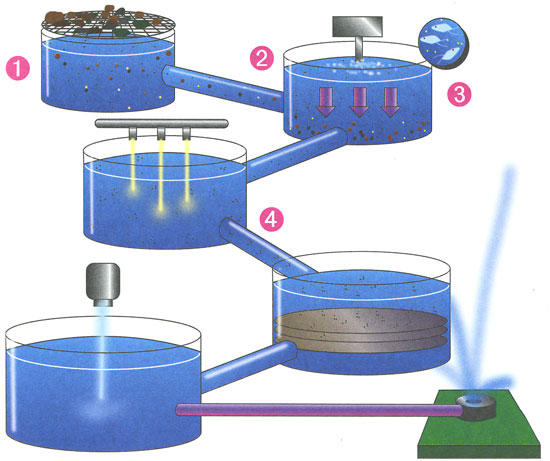Cape Town and Durban residents will soon have to face the possibility of drinking recycled water from sewerage as the water resources in the two cities become scare. However, can we really drink recycled water, how does that effect people and how do you recycle water? With all these questions buzzing around recycled water, let us start from the start.
What Is Recycled Water?
Recycled or reclaimed water is water former waste water (sewerage water) that is treated to remove solids and certain impurities and used in landscaping irrigation or to recharge ground water sources. The purpose of reusing or recycling water is to create sustainability and water conservation.

What Is The History Of Recycling Water?
The earliest water recycling programs started in 1800’s, because of the drought problems that America faced. Waste water was recycled and then reused on farms and in gardens. In fact in the town of Windhoek in Namibia, the government has been recycling water since 1968, during sever draughts or in the event of an emergency.
How Is The Water Treated?
Purified water is subjected to advanced water treatment and under goes constant testing. This effectively means that the treated or recycled water is at a higher quality than that of normal tap water. Water is generally put through a seven barrier treatment process to ensure the end product is fresh reusable water.
Recycling water may be a new concept for South Africa, but the rest of the world has been doing it for years. South Africa have realised the water shortages facing the country particularly in two of the larger cities, Cape Town and Durban and have two available options. First, desalinated water and second, recycling domestic water.
First, desalinated water is the process of taking the salt out of sea water and purifying the water, making it usable. However the problem is that it is rather expensive, at R12 per kilolitre of water. Second, recycling domestic water is a cheaper option, R7 per kilolitre.
What About The Polluted Water?
South African not only has a drinking water shortage, but also a shortage of clean water. The South African government have begun implementing programs to teach citizens the value of clean water and how we can prevent water pollution. The ‘adopt a river’ program is aimed at teaching citizens how to limit waste and pollution around sensitive water areas (wetlands and rivers) that would allow for sustainable development.
To conclude, water is an abundant resource. The earth has the same amount of water now as it did when it began. The problem is that a mere three percent of the world water resources are consumable. Therefore, we need to begin the process of cleaning water in order for us to have drinking water in the future.
I am Greg Jones a water dispensers consultant for a water wise company. This article is aimed at showing people that we have a real crisis on our hands and we need to begin recycling our water before it is too late.

